| The Rolling Stones: Paint It, Black (released 7 May 1966) (read more)
The principal riff of “Paint It Black” (almost all classic Rolling Stones songs are highlighted by a killer riff) was played on a sitar by Brian Jones and qualifies as perhaps the most effective use of the Indian instrument in a rock song. The exotic twang was a perfect match for the dark, mysterious Eastern-Indian melody, which sounded a little like a soundtrack to an Indian movie hijacked into hyperdrive. |
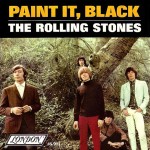 |
| Alice is an album by Tom Waits, released May 7, 2002 on Epitaph Records (under the Anti sub-label). The album contains the majority of songs written for the play Alice. The adaptation was directed by Robert Wilson, whom Waits had previously worked with on the play The Black Rider, and originally set up at the Thalia Theatre inHamburg in 1992. The play has since been performed in various theatres around the world. |  |
| Jimmy Lee Ruffin (born May 7, 1939) is an American soul singer, and elder brother of David Ruffin of The Temptations. He had several hit records between the 1960s and 1980s, the most successful being “What Becomes of the Brokenhearted”. | 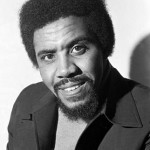 |
| Edward Thomas “Eddie” Rabbitt (November 27, 1941 – May 7, 1998) was an American singer-songwriter and musician. His career began as a songwriter in the late 1960s, springboarding to a recording career after composing hits such as “Kentucky Rain” for Elvis Presley in 1970 and “Pure Love” for Ronnie Milsap in 1974. Later in the 1970s, Rabbitt helped to develop the crossover-influenced sound of country music prevalent in the 1980s with such hits as “Suspicions” and “Every Which Way but Loose.” His duets “Both to Each Other (Friends and Lovers)” and “You and I”, with Juice Newton and Crystal Gayle respectively, later appeared on the soap operasDays of Our Lives and All My Children. | 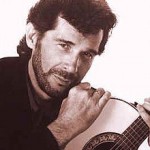 |
| My Ride’s Here is the eleventh studio album by American singer/songwriter Warren Zevon, released May 7, 2002. Zevon described it as “a meditation on death”; it was released several months before Zevon was diagnosed with terminal mesothelioma. |  |
Spotify Playlist – May 7 |
|
Tag Archives: music calendar
May 6 in music history
| Happy birthday Bob Seger (born: May 6, 1945) – (read more)
Mediocrity’s easy, the good things take time, the great need commitment. — — |
 |
| Today: Otis Blackwell passed away in 2002 – 11 years ago (read more)
I used to go down every year for the remembrance of Elvis’ birthday. Memphis State College invited me to sit in the auditorium and speak to the people for one of those Elvis days. — |
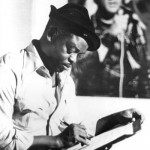 |
| Jimmie Dale Gilmore (born May 6, 1945) is a country singer, songwriter, actor, recording artist and producer, currently living in Austin, Texas. Gilmore is a native of the Texas Panhandle, having been born in Amarillo, Texas, and raised in Lubbock, Texas. His earliest musical influence was Hank Williams and the honky tonk brand of country music that his father played. In the 1950s, he was exposed to the emerging rock and roll of other Texans such as Roy Orbison and Lubbock native Buddy Holly, as well as to Johnny Cash. He was profoundly influenced in the 1960s by the likes of The Beatles and Bob Dylan and the folk music and blues revival in that decade.With Joe Ely and Butch Hancock, Gilmore founded The Flatlanders |
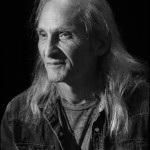 |
| Marie Magdalene “Marlene” Dietrich (27 December 1901 – 6 May 1992) was a German actress and singer. |  |
Spotify Playlist – May 6 |
|
May 5 in music history
| Blind Willie McTell (May 5, 1898 – August 19, 1959) (read more)
And I know no one can sing the blues — |
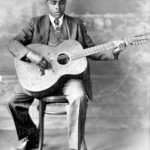 |
| Bob Dylan recorded the released version of “Blind Willie McTell” @ Studio A, Power Station, New York City, New York – 5 May 1983. – “Blind Willie McTell” is a song by Bob Dylan, titled after the blues singer Blind Willie McTell. It was recorded in 1983 but left off Dylan’s album Infidels and officially released in 1991 on the The Bootleg Series Volumes 1–3 (Rare & Unreleased) 1961–1991. |
 |
| Virginia Wynette Pugh, known professionally by her stage name as Tammy Wynette, (May 5, 1942 – April 6, 1998) was an American country music singer-songwriter and one of the Country music’s best-known artists and biggest-selling female singers. She was an icon to country music. |  |
| Marshall Garnett Grant (May 5, 1928 – August 7, 2011) was the upright bassist and electric bassist of singer Johnny Cash’s original backing duo, the Tennessee Two, in which Grant and electric guitarist Luther Perkins played. The group became known as The Tennessee Three in 1960, with the addition of drummer W. S. Holland. Grant also served as road manager for Cash and his touring show company. | 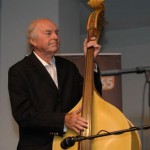 |
| Adele Laurie Blue Adkins (born 5 May 1988), better known simply as Adele, is an English singer-songwriter, musician and multi-instrumentalist. Adele was offered a recording contract from XL Recordings after a friend posted her demo on Myspace in 2006. The next year she received the Brit Awards “Critics’ Choice” award and won the BBC Sound of 2008. Her debut album, 19, was released in 2008 to much commercial and critical success. It certified four times platinum in the UK, and double platinum in the US. Her career in the US was boosted by a Saturday Night Live appearance in late 2008. At the 2009 Grammy Awards, Adele received the awards for Best New Artist and Best Female Pop Vocal Performance. |  |
Spotify Playlist – |
|
May 4 in music history
| Happy birthday Randy Travis (born May 4, 1959) – read more
Like the Beatles in rock, Randy Travis marks a generational shift in country music. When his Storms of Life came out in 1986, country music was still wallowing in the post-urban cowboy recession, chasing elusive crossover dreams. Travis brought the music back to its basics, sounding like nothing so much as a perfect blend of George Jones and Merle Haggard. |
 |
| Bob Dylan recorded “Every Grain of Sand” in 1981: * Bob Dylan’s best songs – Every Grain of Sand #11 – & held his last recording sessions for “Slow Train Coming” in 1979: * Bob Dylan – 5th and last Slow Train Coming Recording Session – 4 May 1979 |
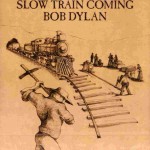 |
| Paul Butterfield (17 December 1942 – 4 May 1987) was an American blues vocalist and harmonica player, who founded the Paul Butterfield Blues Band in the early 1960s and performed at the original Woodstock Festival. He died of drug-related heart failure. The Paul Butterfield Blues Band were nominated for induction into the Rock and Roll Hall of Fame. |  |
| Michael Ryan Pritchard (born May 4, 1972) is an American musician, best known as the bassist, backing vocalist and co-founder of the American rock band Green Day. While at school, he would play “air-bass.” While pretending to pluck the strings, he made the noise, “dirnt, dirnt, dirnt”. As a result, his schoolmates began to call him “Mike Dirnt“. |  |
| Dick Dale (born Richard Anthony Monsour on May 4, 1937) is an American surf rock guitarist, known as The King of the Surf Guitar. He experimented with reverberation and made use of custom made Fender amplifiers, including the first-ever 100-watt guitar amplifier. |  |
| Soozie Tyrell, (born May 4, 1957), formerly known as Soozie Kirschner, is an American violinist and vocalist, most known for her work with Bruce Springsteen in the E Street Band. |  |
Spotify Playlist – May 4 |
|
May 03 in music history
| James Brown: born May 3, 1933 (read more)“Soul Brother Number One,” “the Godfather of Soul,” “the Hardest Working Man in Show Business,” “Mr. Dynamite” — those are mighty titles, but no one can question that James Brown earned them more than any other performer. Other singers were more popular, others were equally skilled, but few other African-American musicians were so influential over the course of popular music. And no other musician, pop or otherwise, put on a more exciting, exhilarating stage show: Brown’s performances were marvels of athletic stamina and split-second timing.” ~Richie Unterberger (allmusic.com) |
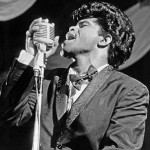 |
| Bob Dylan: 4th Slow Train Coming Recording Session, 3 May 1979 (read more) “Today I’m accused of being a follower of religion. But I’ve always been a follower! My thoughts, my personal needs have always been expressed through my songs; you can feel them there even in ‘Mr Tambourine Man’. When I write a song, when I make a record, I don’t think about whether it’ll sell millions of copies. I only think about making it, the musical end-product, the sound, and the rhythmic effect of the words. It’s purely a technical piece of work because the most important thing is to come out with something that’s perfect artistically. Even Charlie Chaplin used to say that and I respect him for that judgment.” ~Bob Dylan (to Sandra Jones – June 1981) |
 |
| Peter “Pete” Seeger (May 3, 1919 – January 27, 2014) was an American folk singer and activist. A fixture on nationwide radio in the 1940s, he also had a string of hit records during the early 1950s as a member of the Weavers, most notably their recording of Lead Belly’s “Goodnight, Irene”, which topped the charts for 13 weeks in 1950. Members of the Weavers were blacklisted during the McCarthy Era. In the 1960s, he re-emerged on the public scene as a prominent singer of protest music in support of international disarmament, civil rights, counterculture and environmental causes. |  |
| Dave Dudley (May 3, 1928 – December 22, 2003), born David Darwin Pedruska, was an American country music singer best known for his truck-driving country anthems of the 1960s and 1970s and his semi-slurred baritone. His signature song was “Six Days on the Road,” and he is also remembered for “Vietnam Blues,” “Truck Drivin’ Son-of-a-Gun,” and “Me and ol’ C.B.”. Other recordings included Dudley’s duet with Tom T. Hall, “Day Drinking,” and his own Top 10 hit, “Fireball Rolled A Seven,” supposedly based on the career and death of Edward Glenn “Fireball” Roberts. |  |
| “It Wasn’t God Who Made Honky Tonk Angels” (recorded: May 3 1952 Castle Studios – Nashville, Tennessee). Written by J. D. “Jay” Miller, and originally recorded by Kitty Wells. It was an answer song to the Hank Thompson hit “The Wild Side of Life.”The song — which blamed unfaithful men for creating unfaithful women — became the first No. 1 Billboard country hit for a solo female artist. In addition to helping establish Wells as country music’s first major female star, “It Wasn’t God…” paved the way for other female artists, particularly Dolly Parton, Patsy Cline, Loretta Lynn, and Tammy Wynette, and songs where women defied the typical stereotype of being submissive to men and putting up with their oft-infidel ways. | 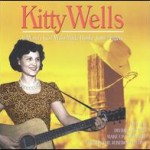 |
| Bruce Springsteen: Shoreline Amphitheatre Mountain View,CA May 03, 1988 (read more) | 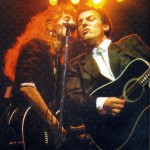 |
| Neil Young: New Orleans Jazz and Heritage Festival, May 03, 2009 (Videos) |  |
Spotify Playlist – May 03 |
|
